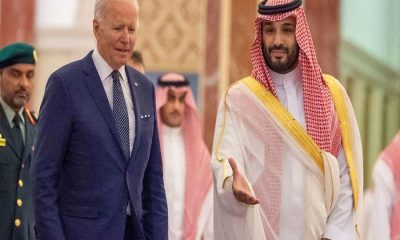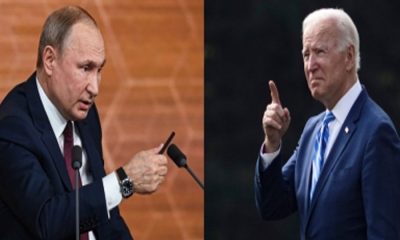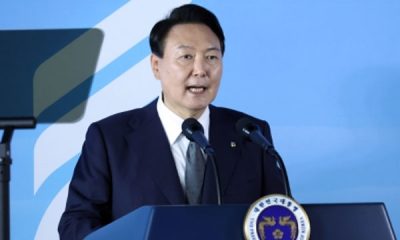International News
Modi, Biden launch ‘new chapter’ in India-US ties to face tough challenges

“We’re launching a new chapter in the history of US-Indian ties and taking on some of the toughest challenges we face together,” President Joe Biden said on Friday as he and Prime Minister Narendra Modi began their summit in a fast-changing world throwing up problems and new issues at dizzying speeds.
After their meeting, Modi tweeted: “Had an outstanding meeting with @POTUS @JoeBiden. His leadership on critical global issues is commendable. We discussed how India and USA will further scale-up cooperation in different spheres and work together to overcome key challenges like COVID-19 and climate change.”
Speaking before the formal start of their meeting, Modi told Biden: “I find that under your leadership, the seeds have been sown for the Indo-US relations to expand, and for all democratic countries in the world, this is going to be a transformative period. I can see that very clearly.”
The shared democratic values of the two countries was a thread weaving them together.
“Democratic values, traditions to which both countries are committed, I find that importance of these traditions will only increase further,” Modi said.
Biden said: “Our partnership is more than just what we do. It’s about who we are. It’s rooted in our shared responsibility to uphold democratic values, our joint commitment to diversity.”
Both leaders spoke of the Indian diaspora, another factor that is binding the two nations together.
India-US relations are “about family ties, including four million Indian-Americans who make the United States stronger every single day”, Biden said.
Modi said: “You mentioned, there are more than four million Indian Americans who are participating in the journey of progress of America. When I look at the importance of this decade, and the role that is going to be played by this talent of the Indian Americans, I find that the people-to-people talent will play a greater role and Indian talent will be a full partner in this relationship. And I see that your contribution is going to be very important in this.”
The two leaders mentioned Gandhi Jayanti that comes up next week. “As the world celebrates Mahatma Gandhi’s birthday next week, we’re all reminded that his message of nonviolence, respect, tolerance matters today maybe more than it ever has,” Biden said.
“Mahatma Gandhi always used to talk about the principle of trusteeship, trusteeship of the planet,” Modi said turning to environment, a subject dear to Biden.
“It means that the planet that we have, we have to bequeath it to the following generations, and this sentiment of trusteeship is going to assume more and more importance globally, but also between the relations between India and the United States, and it is these ideals that Mahatma Gandhi espoused,” he said. “The responsibility of global citizens is only going to go up.”
Biden referred to the Quad summit where they will be joined by Prime Ministers Yoshihide Suga of Japan and Scott Morrison of Australia, and said: “The Prime Minister and I are going to be talking today about what more we can do to fight Covid-19, take on the climate challenges that the world face, and ensure stability in the Indo-Pacific, including with our own Quad partners.”
Modi profusely thanked Biden for his efforts to continue building relations with India and recalled that their meeting in 2014 while Biden was Vice President and discussed the ties between the two countries.
He said: “You had laid out a vision for India-US relationship in great detail. And really, that was a vision that was inspirational. And today, Mr. President, as President, you are making all efforts and taking initiatives to implement that vision.”
“I see is that this is the third decade of the 21st century, this is the first year of the third decade. And I see that when I look at the entire decade, I find that under your leadership the seeds have been sown for the Indo-US relations to expand,” Modi said.
International News
India & Russia Are Working On Chennai-Vladivostok Eastern Maritime Corridor: PM Modi
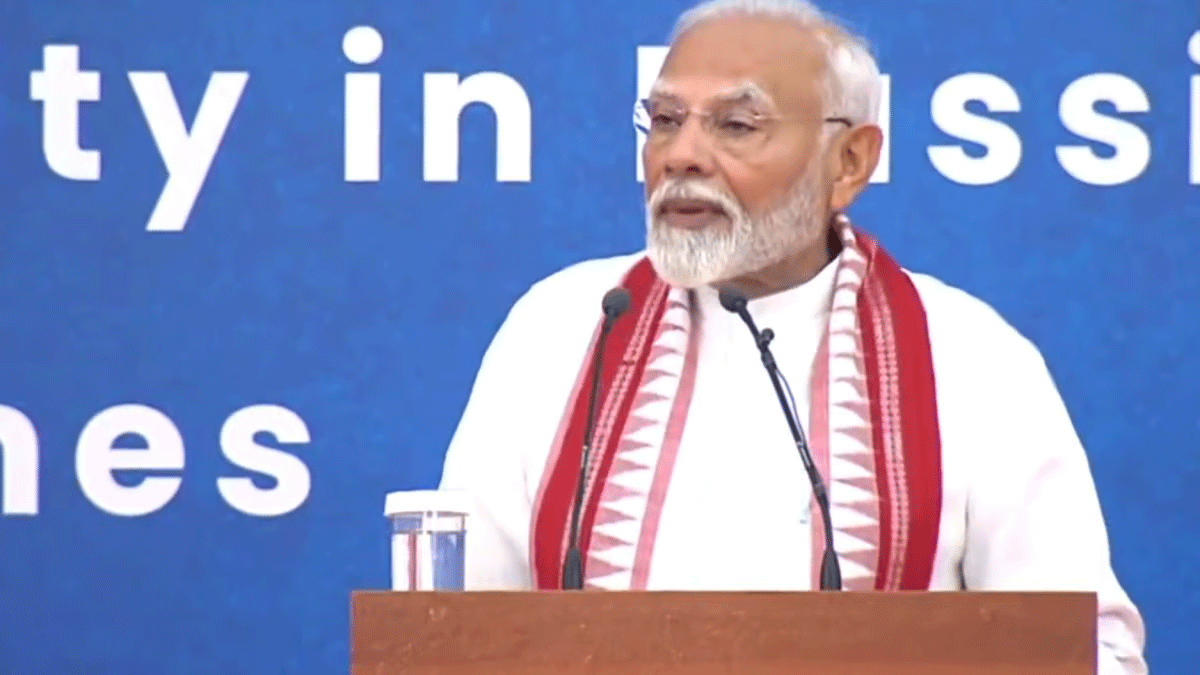
Moscow: Addressing Indians living in Russia, Prime Minister Narendra Modi on Tuesday at a community programme in Moscow said that India and Russia are working on the Chennai-Vladivostok Eastern Maritime Corridor.
PM Modi said that they are discovering each other through Ganga-Volga dialogue.
“Two years ago, the first commercial consignment also reached here from the North-South Transport Corridor… Now we are also working on Chennai-Vladivostok Eastern Maritime Corridor. Both our countries are discovering each other through Ganga Volga dialogue and civilization.”
PM Modi Recalls His Visit To Russia In The Year 2015
He recalled his visit to Russia in 2015 and said that he had then said that the 21st century would be a witness to India’s success and development. Today, the whole world believes the same and it is witnessing India’s growth.
“When I came here in 2015, I had said that the 21st century will belong to India. Experts and veterans of all fields say in unison that India is rapidly progressing.”
Prime Minister said that today, as ‘Vishwa Bandhu’, or ‘a friend to the world’. India is giving new confidence to the world.
“India’s growing capability has given the whole world a hope of stability and prosperity. India is being seen as a strong pillar of the new, emerging, multipolar, world order,” he said.
PM Modi On India
Prime Minister said that India is always the first country to provide aid whenever any country faces a crisis.
“When India talks about peace, dialogue and diplomacy, the whole world listens. Whenever the world faces a crisis, India is the first country to reach there,” he said.
External Affairs Minister S Jaishankar, Foreign Secretary Vinay Kwatra, and India’s Ambassador to Russia, Vinay Kumar also accompanied PM Modi to the event.
Earlier on Monday, Russian President Vladimir Putin and Prime Minister Narendra Modi held an informal meeting at the Novo-Ogaryovo residence of the Russian president near Moscow.
International News
Iran-Pakistan Diplomatic Tensions Soar As Islamabad Expels Iranian Ambassador Following Tehran’s Missile Attack
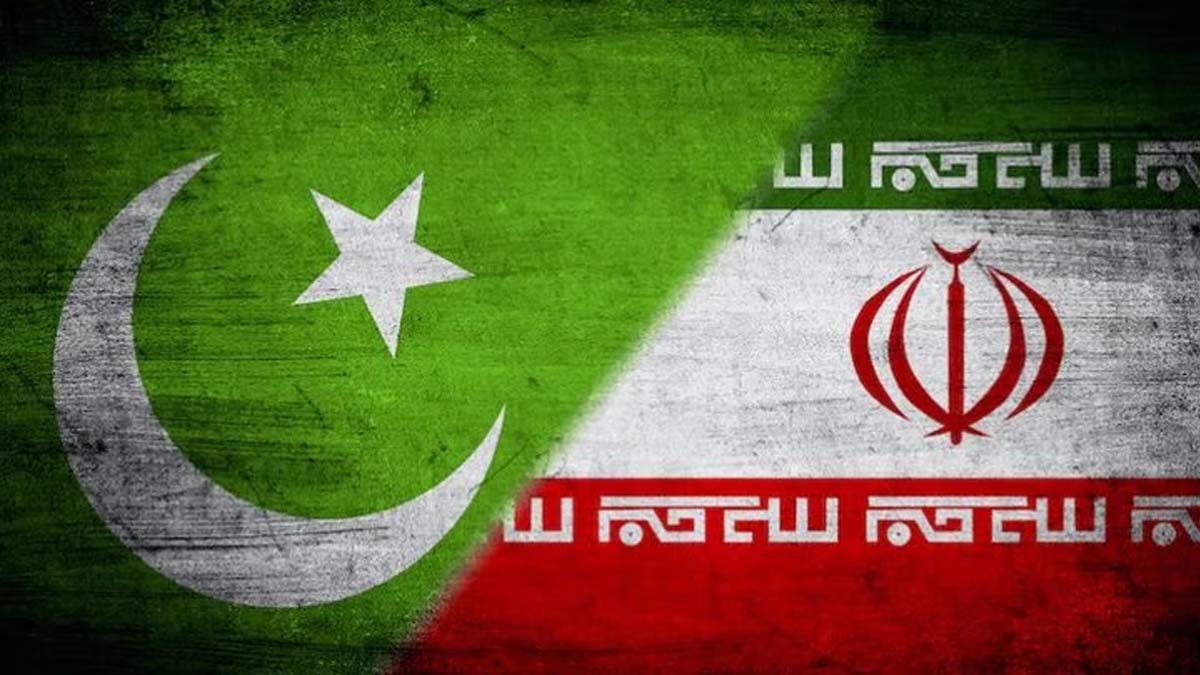
Following Iran’s launch of a barrage of missiles on Pakistan, Islamabad on Wednesday expelled the Iranian ambassador and recalled its ambassador from Tehran, Geo News reported.
“Pakistan has decided to recall its ambassador from Iran and that the Iranian Ambassador to Pakistan who is currently visiting Iran may not return for the time being,” Foreign Office spokesperson Mumtaz Zahra Baloch said while addressing a press briefing in Islamabad.
Earlier, Iran attacked the headquarters of a terrorist group opposed to Tehran with drones and missiles in Pakistan on late hours of Tuesday, Al Arabiya News reported citing Tasnim news agency.
Pakistan’s Ministry of Foreign Affairs said that the violation of Pakistan’s sovereignty is “completely unacceptable” and warned of serious consequences. It further said that Iran has taken this action despite the existence of several channels of communication between the two nations.
‘Responsibility for consequences will lie with Iran’
“Pakistan reserves the right to respond to this illegal act and the responsibility for the consequences will lie squarely with Iran,” Baloch said, adding that Islamabad had conveyed the message to the Iranian government.” The foreign ministry spokesperson said.
Formed in 2012, Jaish al-Adl, designated as a “terrorist” organisation by Iran, is a Sunni terrorist group that operates in Iran’s southeastern province of Sistan-Baluchistan, Al Arabiya News reported.
Over the years, Jaish al-Adl has launched numerous attacks on Iranian security forces. In December, Jaish al-Adl took responsibility for an attack on a police station in Sistan-Balochistan that claimed the lives of at least 11 police personnel, according to Al Arabiya News reported.
Sistan-Balochistan borders Afghanistan and Pakistan. The region has a history of clashes between Iran’s security forces and Sunni terrorists, as well as drug smugglers, Al Arabiya News reported.
Dawn news reported that last month, at least 11 Iranian police officers were killed in an attack overnight on a police station in the southeastern province of Sistan-Baluchestan. Iranian Interior Minister Ahmad Vahidi, while visiting the site, had urged Pakistan to prevent terrorist groups from establishing bases within its borders.
The attacks in Pakistan were carried out a day after Iran’s Islamic Revolutionary Guard Corps (IRGC) launched missiles into Iraq’s Kurdistan region at what it called an Israeli “spy headquarters” and at alleged ISIS-linked targets in Syria, the report said.
disaster
Tsunami Waves Hit Japan After Powerful Earthquake, Terrifying
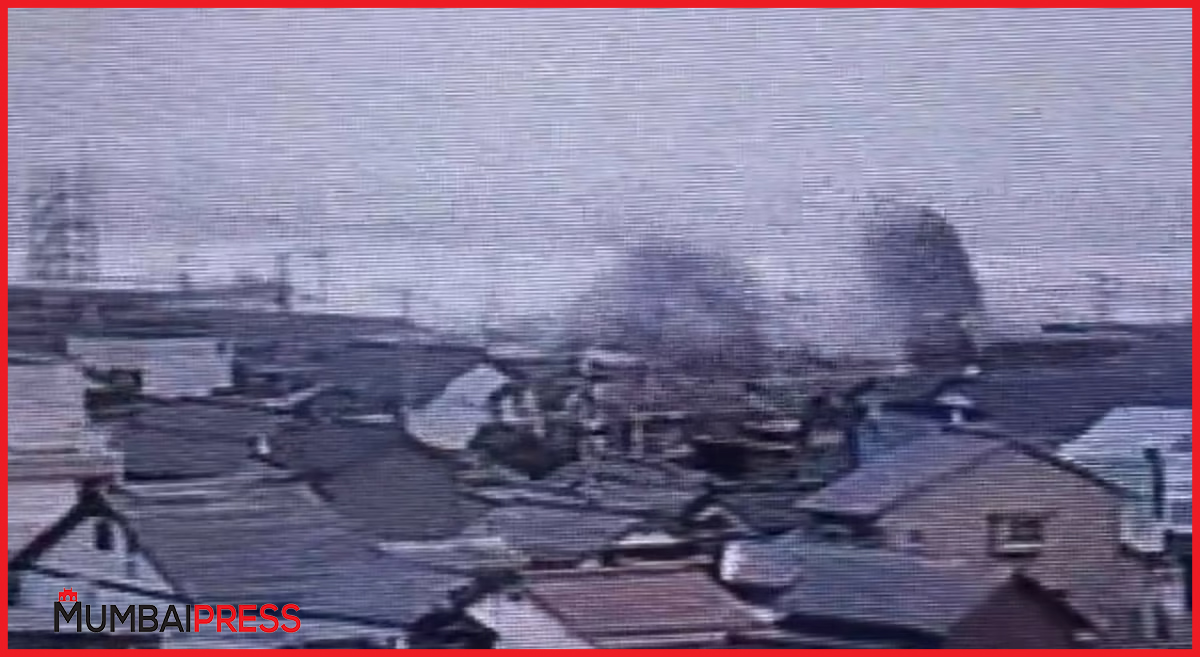
Tokyo, January 1: Tsunami waves reportedly hit coastal areas of central Japan after a powerful earthquake of magnitude 7.5 shook the country on Monday, January 1. Several videos surfaced on social media showing tsunami waves hitting Niigata and Ishikawa prefectures of Japan. At least 21 earthquakes above 4.0 magnitude struck Japan after which the country issued tsunami warning.
According to the Japan Meteorological Agency, waves as high as 1.2 meters (four feet) slammed Wajima port in Ishikawa prefecture at 4:21 pm, local time. Waves of 80 cm reached Toyama Prefecture around 4:35 pm and waves of 40 meters also reached Kashiwazaki, Niigata Prefecture, at 4:36 pm, local time. It also reached Niigata’s Sado Island at 4:10 pm, local time.
Tsunami waves hit parts of Japan
One of the videos showed waves breaking over the seawall in Ishikawa prefecture. Another video showed a powerful wave hitting a car in Niigata prefecture.
Power outages hit Japan
The powerful earthquake disrupted power supply in parts of Japan. According to reports, hundreds of residents were left without electricity. As part of preventive measures, the authorities asked people to evacuate from coastal areas of Ishikawa, Niigata, Toyama and Yamagata prefectures and move to safer locations. Traffic authorities closed major highways near epicentre of the Japan earthquake.
Tsunami warnings were also issued for Niigata, Toyama, Yamagata, Fukui and Hyogo prefectures, also along the Japan Sea Coast. Meanwhile, Russia also declared tsunami threat for parts of Sakhalin’s western coast and urges residents to evacuate to higher ground after the Japan earthquake.
-

 Crime2 years ago
Crime2 years agoClass 10 student jumps to death in Jaipur
-

 Bollywood11 months ago
Bollywood11 months agoJawan Leaked Online! Shah Rukh Khan’s Film Falls Prey To Piracy Within Hours Of Release
-
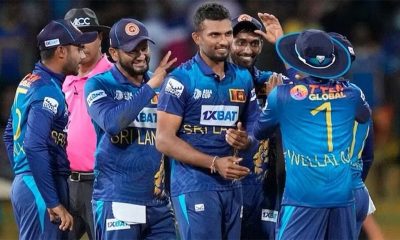
 International10 months ago
International10 months agoAsia Cup 2023: Body Blow For Sri Lanka As Lead Spinner Likely To Miss Final Against India
-
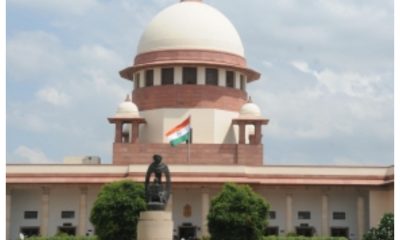
 Crime2 years ago
Crime2 years ago‘You must stop this’, SC expresses concern on hate speeches made at Dharam Sansads
-

 Bollywood11 months ago
Bollywood11 months agoWith Rs.75 Cr, Shah Rukh Khan Breaks His Own Record As Jawan Beats Pathaan On Day 1 At Box Office
-
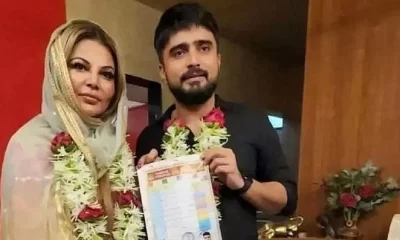
 Entertainment2 years ago
Entertainment2 years agoRakhi Sawant changes name to Fatima after her wedding with Adil Khan Durrani – Check viral Nikah pics
-

 Bollywood2 years ago
Bollywood2 years agoAnushka Sharma starts shooting for her ‘Chakda Xpress’
-

 Bollywood11 months ago
Bollywood11 months agoJawan On OTT: Shah Rukh Khan’s Film Sold To Netflix For A Whopping Rs.250 Crore



